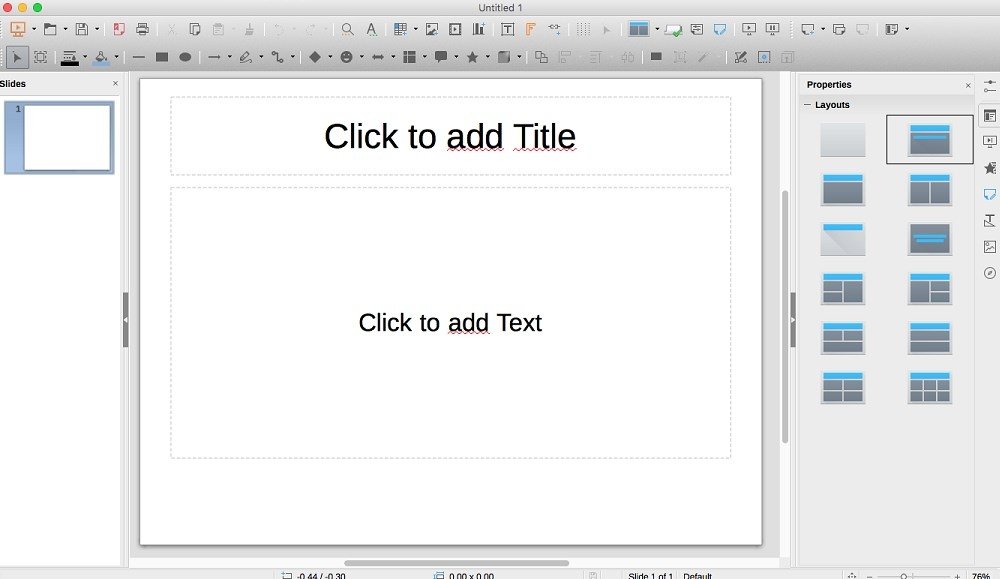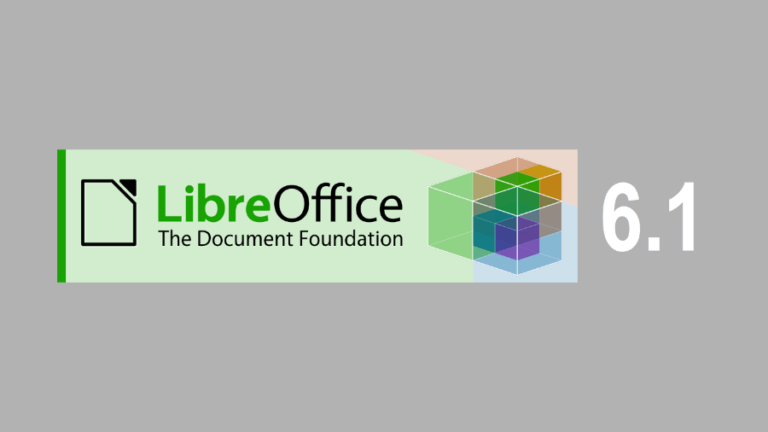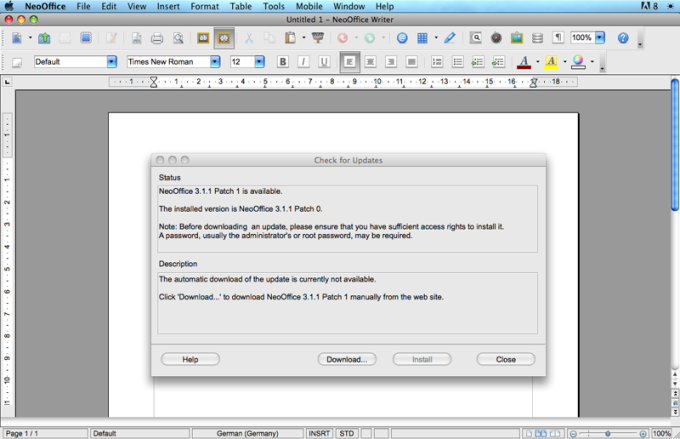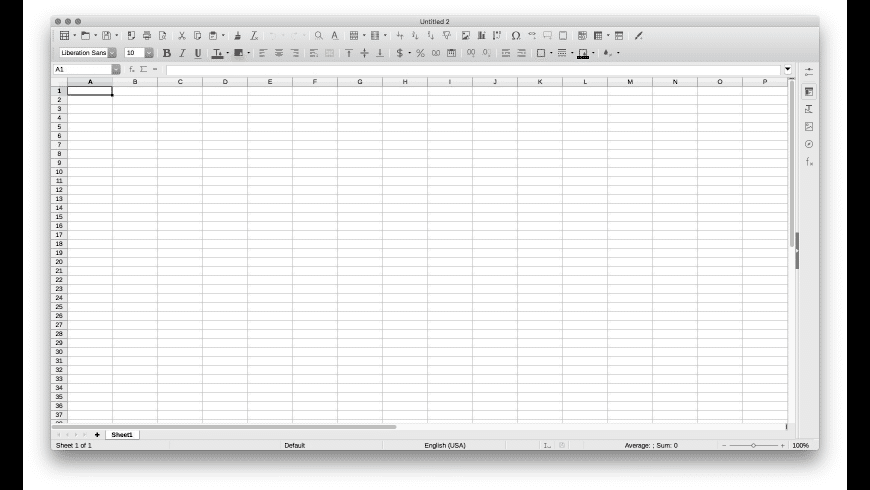NeoOffice is an office suite for Mac that is based on OpenOffice and LibreOffice. With NeoOffice, you can view, edit, and save OpenOffice documents, LibreOffice documents, and simple Microsoft Word, Excel, and PowerPoint documents.
NeoOffice is an office suite for Mac that is based on OpenOffice and LibreOffice. With NeoOffice, you can view, edit, and save OpenOffice documents, LibreOffice documents, and simple Microsoft Word, Excel, and PowerPoint documents. Two engineers created NeoOffice in 2003 when they made OpenOffice run natively on OS X for the first time. MacOS versions prior to 10.8 are only supported with LibreOffice versions 4.3 and earlier (see Release Notes for version 4.4).The old versions are available in download archive. Download; 1.5.5 Update German Translations 3.3 Linux, Windows, macOS GPL Download; 1.5.4 Added support for RTF in Writer 3.3 Added support for RTF in Writer Download; 1.5.3 Improved default values Known Bug: Empty Sheets can't be saved. 3.3 Improved default values Known Bug: Empty Sheets can't be saved.
Two engineers created NeoOffice in 2003 when they made OpenOffice run natively on OS X for the first time. Since then, the NeoOffice engineers have continually added improvements to NeoOffice that you will not find in OpenOffice or LibreOffice such as:
- NeoOffice > Open at Launch menu to open Calc or Impress instead of Writer at launch
- File > Browse All Versions menu to restore previous versions of your documents
- Native file locking to safely edit files in iCloud Drive, Dropbox, or network drives
- Native Mac grammar checking
- Support for Mac Services

- → Open Issues
This page describes how to set up a build environment for LibreOffice on macOS 10.14.4. Building master requires Xcode 11.3 or later, which requires macOS 10.14.4 or later.
Prerequisites
- Install Xcode from the App Store. The intent is that LibreOffice will always be buildable with the current Xcode on current macOS. Right after a new Xcode version is released, or after a new macOS version is released, there might be a few days while that is not true. Just be patient in that case. Using older Xcode versions on older macOS versions might also work. What you are absolutely not expected to do is to specifically download some old Xcode version or a separate old SDK and use those.
- Run Xcode at least once (you don't need to open or create any project)
- If you are planning to work on the parts of LibreOffice that are implemented in Java, mainly the HSQLDB embedded database in Base, you need to download and install a JDK (Java SE Development Kit): Oracle's Java SE Development Kit. But that is entirely optional. If you want to avoid Java, just use the --without-java option in your autogen.input or on the autogen.sh command line, when you get that far.

Notice: according to http://document-foundation-mail-archive.969070.n3.nabble.com/About-building-on-Apple-Silicon-M1-tt4298988.html, everything should be ok to build with mac containing processor Apple Silicon M1 except a known issue with in-process JVM (see https://lists.freedesktop.org/archives/libreoffice/2020-December/086490.html)
Building
See Development/lode.
Building Tips
See platform-independent tips at Development/GenericBuildingHints
Building in a ssh session
In some cases it seems that if you are building in a ssh session, some unit tests fail unless you also have a windowing session open to the machine, either on the physical console or through Screen Sharing.
Performance
Building LibreOffice takes time, a lot of time. Exactly how much depends on how powerful your machine is. But there are tools you can use to speed-up things.
ccache
ccache is short for compiler cache - and it is exactly that. It saves tons of time by not running the actual compiler when little has changed in the source codebetween two builds. But note that unless you explicitly do 'make clean' often, that is not typically the case, and using ccache just because you think it maybe helps is not a good idea.

Get it here: [1]
Libreoffice For Mac
Build it like this:
You will also need to ensure the following is defined, e.g. in .bash_profile in your home folder, if using ccache (see Development/Building LibreOffice with Clang for full details), otherwise clang will report errors and show unnecessary warnings:

Libreoffice For Mac Os
The default cache limit (5 GB) is not large enough to be useful for a LibreOffice build, but you can increase it, for instance to 30 GB:
To check what the current cache limit is, and see ccache statistics, run it with the -s command-line option:
Libreoffice Mac Os X
Upgrading to a recent macOS on unsupported machines
Using various unofficial third-party tools it might be possible to run newer macOS versions on machines that are older than what that macOS version supports. If you need that, search for it. It is not relevant to duplicate such information here.
Don't bother building the ODK
It is likely that you don't need to build the 'ODK' (Office Development Kit), especially as building that would require installing one more dependency: doxygen. Use the --disable-odk option in your autogen.input or on the autogen.sh command line.
See also
